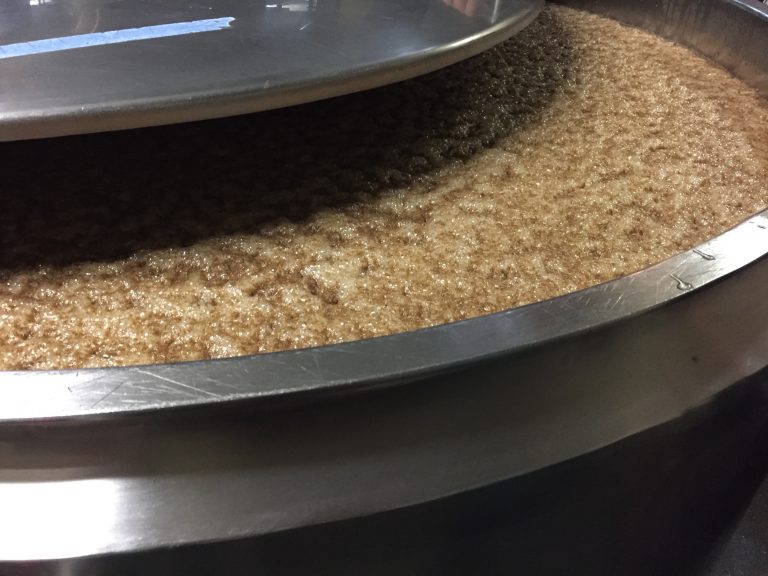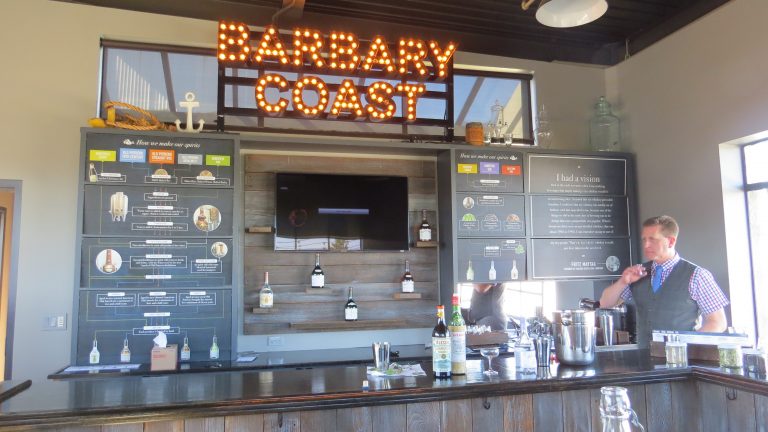Shop Small with Independent Spirits!
All photos by Amanda Schuster.
“Shop small” is a popular slogan these days, especially as more independent businesses are forced to close because they just can’t compete with chain establishments and well-funded corporate entities who can afford more aggressive marketing and expensive real estate. If you’re a fan of spirits, you’ve noticed the difference between big and small there too. You don’t see Matthew McConaughey reciting gibberish into the ether with a pronounced Texas drawl about a small production rye, or a boutique gin brand “taking back the night.” You don’t see ads for independent brandy distilleries with gaggles of attractive models frolicking in the VIP lounge under impossibly flawless lighting plastered all over the subway. However, you will see a selection of craft spirits brands on any liquor store shelf if. Hard to imagine that just 20 years ago, when Anchor Spirits first released Old Potrero Rye whiskey and Junípero Gin, hardly anyone even knew what a craft spirit was.
Pot distillation is a key selling point for a label these days, however, back in the early 90s in San Francisco when Anchor Brewery owner Fritz Maytag sought to make a rye whiskey in the historically relevant style, finding the right equipment - especially the stills and the barrels - was tough. It had always been his vision to rejuvenate brewer and distiller methods that had been lost since Prohibition, and had already found success having accomplished this with Anchor Steam beer. With that groundwork laid, It was time to take it to the next level. He eventually sourced a pot still, but the condenser had to be built in house, and 53 gallon barrels with a specific toast and char had to be custom ordered from a cooper willing to take on the project. 100% malted rye? Well, it all began to make sense to whisky enthusiasts and cocktail historians once the first bottles were released in 1996. Then the rye boom brought the spirit solidly front and center with a new fanbase.
Junípero also celebrates its 20th anniversary this year as the first commercially sold pot-stilled gin in America in the modern age. Maytag’s vision for this product was essentially to create the opposite of what was. Anyone could go to the store and find imported, dry, chill-filtered gin made in a column still. However, unfiltered, high-strength gin for real gin lovers just wasn’t available in the states. Head Distiller Bruce Joseph, who oversaw both these projects with Maytag from the beginning (Maytag retired and sold Anchor to Keith Greggor and Tony Foglio in 2010), recounts that a top secret gathering of brewers known as the “water committee” (because their cover was they were just tasting water for the beer) would meet to taste gin recipes to decide on a final botanical blend. A few spirits industry consultants had warned Maytag that this recipe would get cloudy in cocktails. Little did they know this was precisely what he wanted.
Maytag’s former quarters above the brewery and distillery is now a tasting room and bar all tricked out with modern acoutrements. It looks out over Potrero Hill and an adjacent rooftop botanical garden. It’s here that Anchor tasting room consultant, veteran bartender Jeff Hollinger, along with educator (“educational drinking” is the brand’s motto) Alan Kropf led a tasting of the Anchor Distilling lineup, which has expanded to include a terrific Old Tom gin, HopHead Vodka (which is basically a gin made with beer hops, but legally can’t be labeled “gin” because it contains no juniper) and Genevieve Gin (an astonishingly dense but nuanced throwback to the genever style), among many others. Testing out some recipes, indeed the unfiltered spirits get cloudy in cocktails, but they also taste mighty fine while casting their hazes.
Since Old Potrero and Junípero, there’s been a veritable avalanche of independent American spirits, especially with state liquor laws allowing for more distiller licenses and drinkers with a newfound predilection for things made “in-house” - you know, by hands! What exactly does “craft” mean anymore? This has been debated all over the place, even here. Rather than sing that old song again with new lyrics, here’s a presentation of spirits that play their own tune. Want to support small business during the holidays? Even if you buy these at a big liquor store, you’re helping the underdogs.
Old Potrero 19th Century Rye and Junípero Gin: Celebrate these pioneers on their 20th anniversaries! The 100% malted rye is aged 2.5 - 3 years. This is a big hit with those who crave a bold, spicy rye style with some weight to it, matured just enough so it avoids that all-too-common “green,” herbal finish. At 49.3% ABV, Junípero is not a shy gin, but its rich botanicals and creamy finish add a uniquely delicious texture to cocktails. $70 for the rye, $33 for the gin.
Liberty Tree Boston Rum: It’s named for the meeting place of the Sons of Liberty and produced in the historic, colonial style of rum that was lost during the buildup to the American Revolution. It won double gold in the 2016 NY International Spirits Competition for its hearty weight, clean flavors and balanced earthiness. $34
Lazy Eye Vodka: Most vodka on the market is distilled from potato or grain, but this one is made from grapes - and distilled in a pot still no less. Here’s another that impressed the judges in NYISC, winning gold for its bright, easy-going flavor and clean finish. $36
Black Cow Vodka: or perhaps you prefer your vodka made from milk? That’s right. Black Cow is made from the whey of milk that comes from grass fed cows on the Dorset coast of England. Weird? Well, if you’re a fan of clarified milk punch, this product takes all the arduous fuss out of making them. $40
Sonoma County Distilling Cherrywood Rye: While the majority of the mash bill for this whiskey is rye, it has smaller proportions of wheat and barley, the latter of which is dried with cherrywood. If you yearn to cozy up to a fire under your favorite blanket, but don’t have a fireplace, this is the whiskey equivalent of that comforting sensation. $55
Barking Irons Applejack: As a New York native, I love that this yummy brandy is made exclusively from upstate grown Jonagold, Macoun and Gala apples, which happen to be my three favorites at the farmer’s market. At 100 proof, it fights the good fight in cocktails, but dang if ain’t great in a glass with a couple of rocks too. $43
Copper & Kings Absinthe: This Louisville, Kentucky distillery is known primarily for its brandy, but their line of brandy-based absinthes from muscat grapes is pretty kick ass too. Someone should start a band called Elegantly Herbal, which also describes how these taste. Start out with the flagship Absinthe Blanche, but then let your mind be blown by the Lavender, Citrus and Ginger flavors. $55
Don Ciccio & Figli Nocino: Indie rock is one of the things that makes Washington, D.C. a great town, despite some of its other residents, ahem. This rock star of a walnut liqueur is made right there in the District according to Italian tradition, with green walnuts picked on the feast of San Giovanni, which then undergo a long maceration and aging process. It’s an essential winter cocktail component, adding a brazen dash of rich, almost coffee-like, dark spice to everything from eggnog to hot cocktails and even adds a festive, seasonal layer to all things dark and stirry. $38






